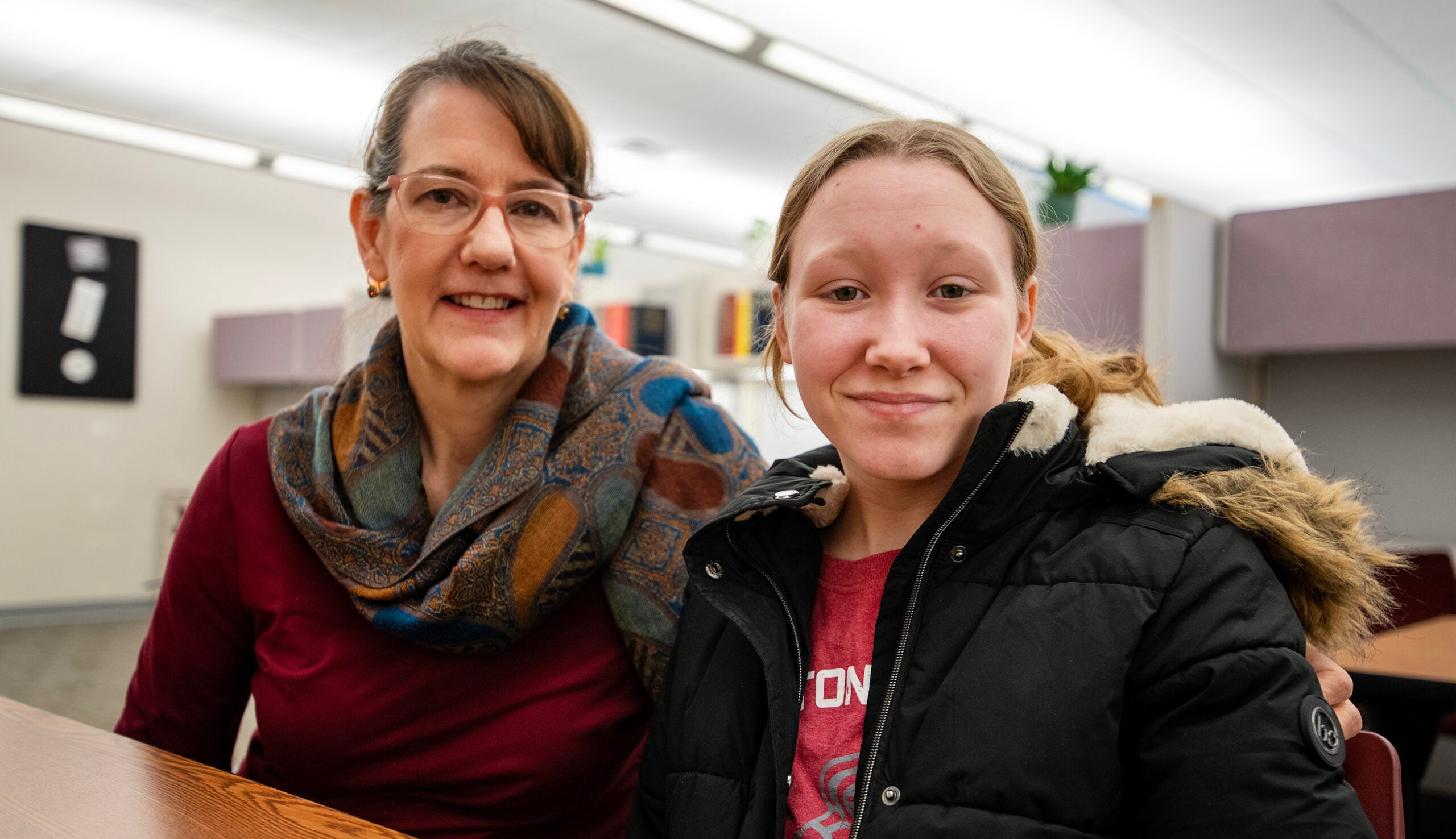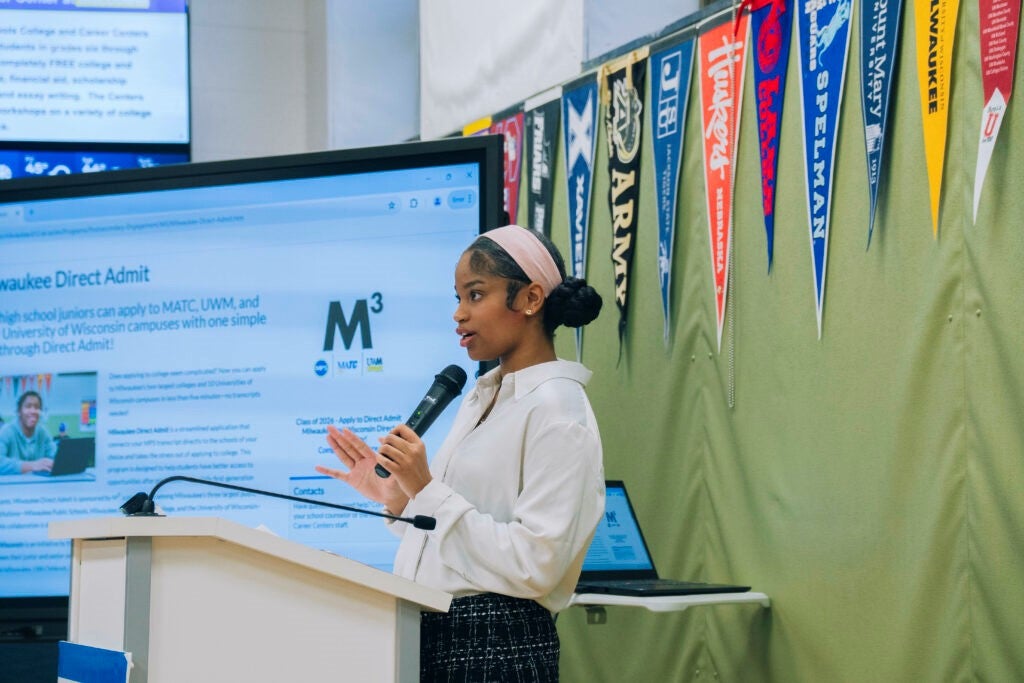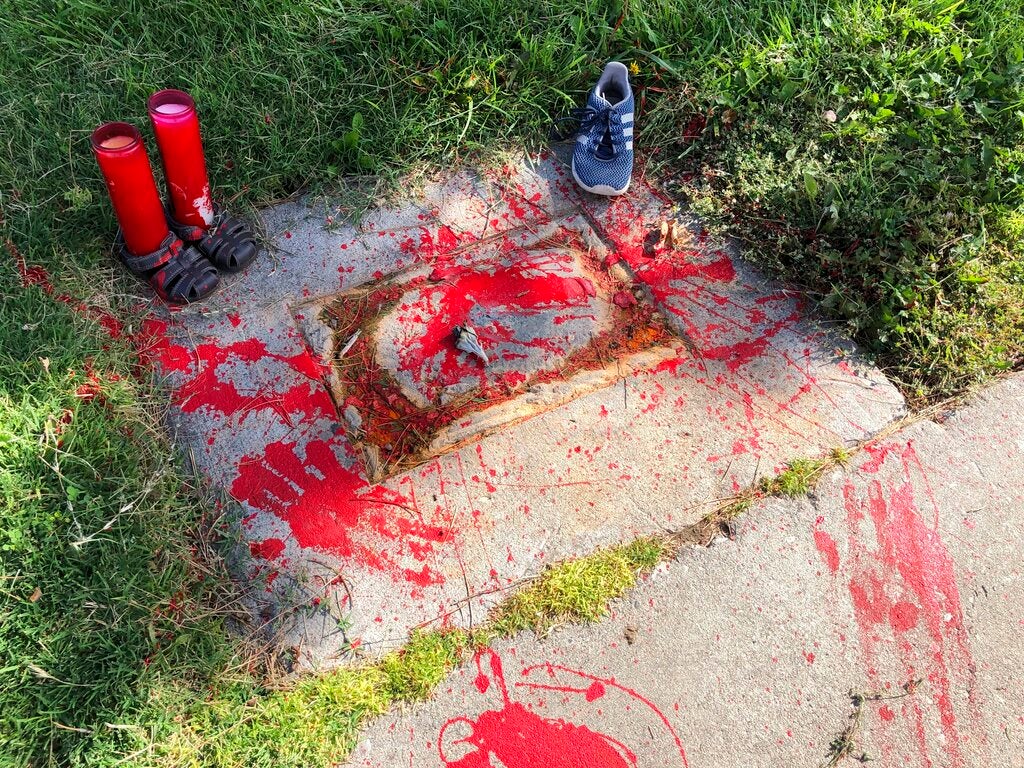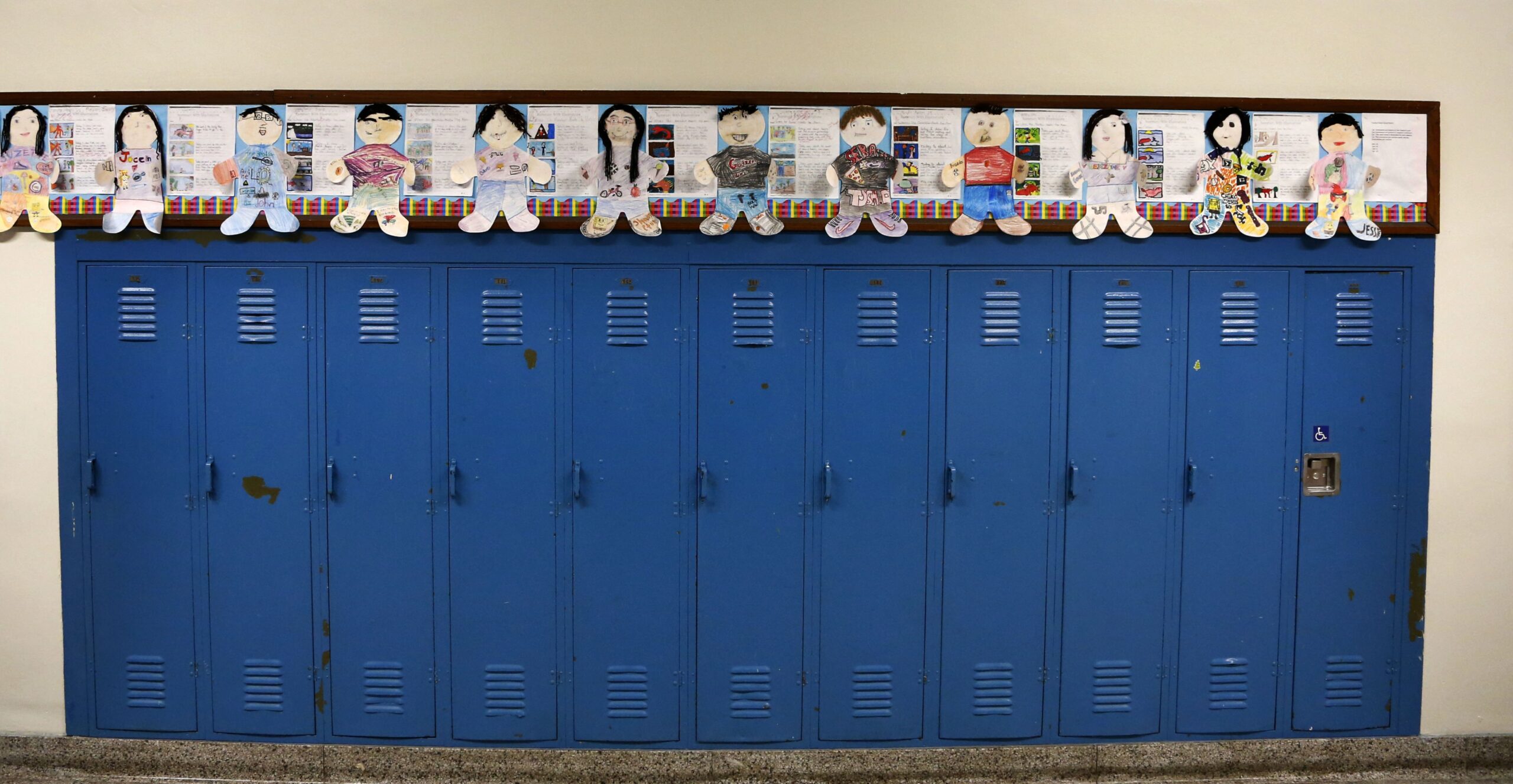When 18-year-old Dasia Banks heard earlier this month that the Baraboo School District agreed to settle a lawsuit she had filed alleging years of racial harassment at her schools, she said it felt like a weight was lifted.
“It was a lot of waiting and trying to see what would happen,” she said. “With the settlement, it kinda feels like I can breathe a little bit.”
The federal lawsuit accused Baraboo schools of violating Banks’ federal civil rights under Title VI and Title IX, which protect students against racial and sexual harassment and discrimination.
News with a little more humanity
WPR’s “Wisconsin Today” newsletter keeps you connected to the state you love without feeling overwhelmed. No paywall. No agenda. No corporate filter.
The suit details years of harassment beginning when Banks was in first grade, when classmates teased her about her coarse hair and skin color.
Racial incidents continued through middle and high school and were met with “deliberate indifference” by school officials, the lawsuit said.
The teenager said she told school officials she was called a “cotton picker,” “slut” and the n-word. Her brother said high school students flew Confederate flags from their cars. According to the lawsuit, the principal of Baraboo High School said students doing so were ignorant of the meaning and brought up free speech issues.
Banks’ mother, Megan Ray, took a job with the Baraboo School District during Banks’ eighth-grade year, working as a basketball coach and a teacher at Jack Young Middle School. She said she repeatedly heard the n-word used, and when she spoke to students about it, they also called her the n-word.
Liz Crammond, Baraboo director of communications, said in an email that she could confirm the matter had been resolved, but that the district was declining to comment further.
The Baraboo School District came under fire in 2018 after photos surfaced of a large group of Baraboo students making a Nazi salute.
Mark Thomsen, one of Banks’ attorneys in her lawsuit, said school officials had the information then to start correcting issues of racism and discrimination in the district.
“After the photo of the Nazi salute went viral, they actually hired a consultant that pointed out they had a serious problem with the racially hostile environment,” he said. “When Baraboo was put on notice, there were young folks with Confederate flags in Dasia’s space over and over again, and that the n-word was used constantly in the hallways. They had an obligation to put an end to that conduct, and they didn’t.”
Banks, her mother and her brother moved to Georgia when she was in third grade, where Banks attended a much more diverse school. According to 2019 data, the 3,000 student Baraboo School District is 80 percent white and only 1.5 percent Black.
“I absolutely loved Georgia,” said Banks. “Teachers were calling me a leader, I had a lot of friends, it was just an overall better environment.”
She had a similar experience in sixth grade, when her family moved to South Carolina. However, after a short time at both schools, she, her mom and brother had to move back to Baraboo for family reasons. Her feelings about going back were torn between worries about school and excitement about returning to family and familiarity.
“I really didn’t want to, but then again, I was excited because that’s where I was from,” she said.
‘When The Racial Harassment Got Worse I Was Getting Cs And Ds’
Like many students who experience racial harassment and bullying at school, the hostile school environment affected Banks’ grades.
“I was always on the high honor roll, A and B honor roll, but my grades did slip freshman year — when the racial harassment got worse I was getting Cs and Ds,” she said. “That was mainly because of not going to school, because I never wanted to go.”
Banks said February was a particularly difficult month because she felt like she was under a microscope during discussions around Black History Month.
“I was always getting looked at every time they talked about slavery or just anything about a Black person,” she said. “Everybody would just turn their heads and look at me.”
Ray pulled her daughter out of Baraboo at the end of her freshman year and she started at Madison East High School her sophomore year. Banks said Madison was a much more welcoming environment, where she felt like she was able to be herself without fear or pushback from classmates or teachers.
Banks and her mother filed the lawsuit in January 2020. Although she’s a minor and didn’t have to publicize her name as part of the lawsuit, Banks said it felt important to do so.
“I can’t sit back and let all these negative things happen to me, I stand up for myself,” she said. “I wanted people to know the face behind it, and I wanted to be the one to tell it.”
Still, the lawsuit came with a personal and emotional cost. Banks was diagnosed with anxiety in third grade, and struggled with anxiety and depression in the years following. She was put on anti-anxiety medication and saw counselors, which helped — as did leaving Baraboo schools — but the years of compounded trauma were hard to shake.
“My junior year I had a good group of friends, basketball was going great, my grades were starting to go back up to where they used to be, and then I kind of just fell into a hole again,” she said. “I developed an eating disorder because of the stress, just having Baraboo and the lawsuit in the back of my head. Having to tell my story over and over again without knowing the outcome of what was going to happen.”
Although the $862,500 settlement from the Baraboo School District brought resolution, she said it’s still hard to hear that other students are experiencing similar harassment at other schools. Families have filed lawsuits or complaints about racially hostile environments and discriminatory treatment in Burlington, Kettle Moraine, Chippewa Falls and Sun Prairie, among others.
“It’s really heartbreaking, I hate hearing people having to go through some of the things I went through,” she said. “That’s one of the main reasons we even brought the lawsuit, was because I didn’t want anybody to have to go through what I went through.”
Mark Thomsen, the attorney, said her and her mother’s dedication was essential to filing the suit and winning a settlement.
“Dasia’s mother insisted on documenting the case, texts, emails, letters, pointing out over and over again to the school district that they had a significant problem of unlawful conduct in the schools,” he said. “I think the bravery of Dasia and her mom really helped refocus that school district, and we hope that Baraboo remembers.”
Banks graduated from Madison East High School earlier this year, and will enroll at Texas Southern University, a historically Black college, in January. She wants to be a nurse anesthetist and said the settlement money will likely help her pay for college and medical school.
“Being in more diverse areas, I just feel more comfortable and more welcome,” she said. “Going to a historically Black college is just a perfect fit.”
Banks said she hopes other students in Wisconsin who are experiencing similar harassment will feel empowered to speak up and keep advocating for themselves.
“At one point I was quiet, I stopped telling people, I stopped going to the principals and telling them what was happening to me because I felt like nothing was going to get done,” she said. “Speaking out really does help, continuing to stand up for yourself, filing reports with teachers. Just continuing to say things and use your voice. Don’t back down to anybody. Don’t let anybody try to silence you.”
Wisconsin Public Radio, © Copyright 2025, Board of Regents of the University of Wisconsin System and Wisconsin Educational Communications Board.







